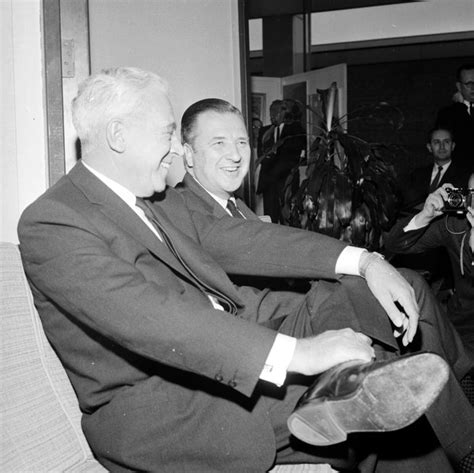A Quote by Don Ihde
I can't experience my brain because I'm inside of it. If you're imaging your brain, you can also find scary things. As one ages, your brain shrinks. And how much it shrinks, and where it shrinks, relates to conditions like Alzheimer's and dementia.
Related Quotes
Essentially, there's a universe inside your brain. The number of connections possible inside your brain is limitless. And as people have learned to have more managerial and direct creative access to their brains, they have also developed matrices or networks of people that communicate electronically. There are direct brain/computer link-ups. You can just jack yourself in and pilot your brain around in cyberspace-electronic space.
Everyone uses the brain at every moment, but we use it unconsciously. We let it run in the background without realizing the power we have to reshape the brain. When you begin to exercise your power, the everyday brain, which we call the baseline brain, starts to move in the direction of super brain.
Since functional brain imaging first emerged, we have learned that there aren't very many brain regions uniquely responsible for specific tasks; most complex tasks engage many if not all of the brain's major networks. So it is fairly hard to make general psychological inferences just from brain data.
So many people are struggling to create happiness while their brain is inundated by noise. If your brain is receiving too much information, it automatically thinks you're under threat and scans the world for the negative first. Because the brain is limited, whatever you attend to first becomes your reality.
In most sports, your brain and your body will cooperate... But in rock climbing, it is the other way around. Your brain doesn't see the point in climbing upwards. Your brain will tell you to keep as low as possible, to cling to the wall and not get any higher. You have to have your brain persuading your body to do the right movements.
The everyday brain could be dubbed "the baseline brain," because it operates at the minimum functioning to keep you alive and healthy. It controls your heart rate, your blood pressure, your immune function, all of your subconscious impulses. That's not a minor role; the baseline brain is a marvel of complexity and efficiency. But too much of it is devoted to habits, old conditioning, unconscious reflexes, and lack of self-awareness.
The brain is a dynamic system that constantly processes and creates your reality. It works best if you balance all the things that the brain is good at. The brain is good at being adaptable, flexible, creative, and intelligent. But it's also good at playing and just being. A balanced life provides time - every day if possible - so that every function of the brain is allowed to come alive and flourish.
With the advent of digital imaging I made the transition from trying to figure out how to do things to creating objects, characters and the whole cloth. It kind of freed up the analytical part of my brain and I had the opportunity to use more of the creative side of my brain for how things interact with light and integrate into stories.







































